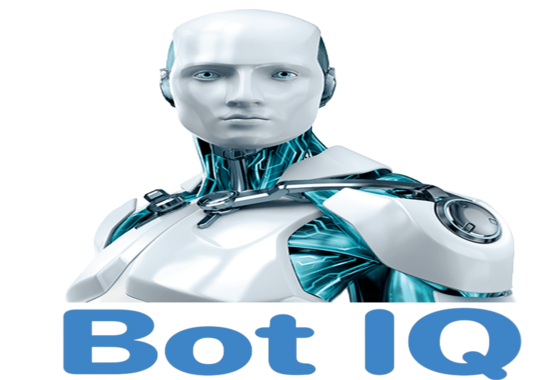Future of AI: A transformative journey into uncharted territories. Paving the way for limitless possibilities and ethical considerations.
Introduction
Artificial Intelligence (AI) has been one of the most transformative and revolutionary technologies of our time. From virtual assistants to self-driving cars, AI has seamlessly integrated into our lives, promising a future that once seemed confined to science fiction. As we stand on the cusp of new possibilities, it's crucial to explore the potential of AI and the ethical implications that come with it.
Advancements in AI
Deep Learning and Neural Networks: Deep learning has been a game-changer in AI research. Neural networks, inspired by the human brain, have enabled machines to recognize patterns, process complex data, and make decisions with incredible accuracy. The evolution of deep learning algorithms continues to push the boundaries of AI capabilities.
Natural Language Processing (NLP):
NLP has given rise to voice-activated assistants and language translation tools, making human-computer interaction more intuitive. As NLP improves, we can expect more sophisticated chatbots, language understanding, and even better automated content generation.
The Current State of AI
Before we delve into the future, let's take a glance at the present. AI has already become an integral part of our daily lives, with voice-activated assistants like Siri and Alexa, personalized product recommendations, and even AI-powered medical diagnostics. Machine Learning, a subset of AI, has played a significant role in these advancements, enabling algorithms to learn from data and improve over time.
AI's Rapid Advancements
AI's progress has been staggering, and it shows no signs of slowing down. Quantum computing is poised to bring exponential leaps in AI capabilities, as it promises to solve complex problems at a pace that was previously unimaginable. This breakthrough could lead to unprecedented achievements in areas like drug discovery, climate modeling, and optimization challenges.
The Convergence of AI with Other Technologies
AI's true potential lies in its convergence with other technologies. When combined with the Internet of Things (IoT), AI can create smart, interconnected systems that facilitate automation and decision-making without human intervention. The integration of AI with 5G networks could accelerate real-time data processing and pave the way for innovative applications across industries.
AI and Ethical Concerns
As AI continues to evolve, so do ethical concerns surrounding its usage. The "black box" problem, where AI systems make decisions without providing clear explanations, raises questions about accountability and transparency. Additionally, there are concerns about job displacement as AI and automation replace specific human tasks, potentially leading to widespread unemployment.
AI and Creativity
The future of AI goes beyond mundane tasks; it promises to redefine creativity. AI-generated art, music, and literature have already showcased their creative capabilities. However, the question of whether AI can genuinely possess creativity or if it's merely replicating patterns from existing works remains a philosophical debate.
Computer Vision
AI's ability to interpret and understand visual information has led to significant developments in computer vision. Applications like facial recognition, object detection, and medical imaging have immense potential for industries ranging from security to healthcare.
AI in Healthcare and Medicine
AI is poised to revolutionize healthcare by enhancing diagnostics, drug discovery, and personalized treatment plans. AI-driven predictive models could help identify diseases at an early stage, leading to more effective and timely interventions. Moreover, AI can assist in analyzing vast amounts of genomic data, unraveling the intricacies of diseases, and developing targeted therapies.
The Ethical Implications of AI in Warfare
As AI enters military applications, ethical concerns about autonomous weapons systems arise. The development of AI-powered weapons that can make life-and-death decisions without human intervention raises alarm about the potential for abuse and unintended consequences.
AI and Climate Change
Climate change poses one of the most significant challenges of our time. AI can play a crucial role in monitoring environmental data, predicting climate patterns, and optimizing resource usage to mitigate the impact of climate change. However, deploying AI on a global scale also requires careful consideration of its energy consumption and potential carbon footprint.
Reinforcement Learning
This approach allows AI systems to learn from their actions in a given environment, leading to advancements in robotics, autonomous vehicles, and gaming. As reinforcement learning algorithms become more sophisticated, AI will excel in complex decision-making tasks.
AI for Personalization
AI-powered recommendation systems have revolutionized the way we discover products, services, and content tailored to our preferences. In the future, AI will delve even deeper into personalization, influencing areas like education, healthcare, and entertainment.
Ethical Considerations in the Future of AI
Bias and Fairness:
AI algorithms are only as unbiased as the data they are trained on. Biased data can lead to discriminatory outcomes, reinforcing existing social prejudices. Ensuring fairness and transparency in AI decision-making becomes paramount to avoid perpetuating social inequalities.
Privacy and Data Security:
The increasing integration of AI in various aspects of our lives raises concerns about data privacy and security. AI systems often rely on vast amounts of personal data, and safeguarding this information becomes essential to protect individuals from potential misuse.
Autonomous Systems and Accountability:
As AI systems become more autonomous, questions about responsibility and accountability arise. Who should be held responsible for AI errors or accidents? Establishing legal and ethical frameworks for AI accountability is crucial to avoid any misuse or harm caused by AI systems.
Job Displacement and Workforce Changes:
AI's potential to automate tasks and jobs raises concerns about job displacement and the need for re-skilling and upskilling the workforce. Preparing for this shift and implementing policies to support workers in transition will be vital for a smooth societal adaptation.
AI in Warfare and Lethal Autonomous Weapons:
The development of AI-powered military technologies, including lethal autonomous weapons, poses grave ethical dilemmas. Striking a balance between using AI for defense and ensuring human control over life-and-death decisions is of utmost importance.
AI and Social Manipulation:
The use of AI to generate realistic deepfakes or propagate misinformation raises ethical concerns about media authenticity and its potential impact on public trust and social cohesion.
The future of AI is both exciting and uncertain. Its transformative potential is vast, promising a world with unparalleled opportunities and convenience. However, this future must be navigated with caution, as we address the ethical dilemmas and unintended consequences that AI may bring.
Ultimately, the path to an AI-powered future lies in our hands. By fostering collaboration between industry, academia, policymakers, and society, we can shape the development of AI in a way that aligns with human values and ensures a brighter and more equitable tomorrow. Let us embrace the potential of AI while being vigilant custodians of its responsible use.
Discover the power of AI in content writing! Visit www.botiq.in for the best AI content writer services. With cutting-edge technology, creative flair, and precision, they can help you elevate your content to new heights. Experience the future of content creation at www.botiq.in today!










